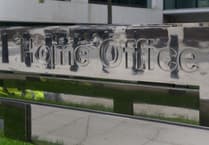A serving Surrey Police officer accused of a “series of acts of harassment” against three female officers will not be named by the force throughout his gross misconduct hearing.
A five-day hearing will take place at the force’s Guildford headquarters, but the chair of proceedings will not disclose the name of the serving officer for his welfare.
The legally qualified chair, Eileen Herlihy, has been asked why the officer was not being named, particularly in light of nationwide public concerns about misogyny across multiple police forces, in the wake of Sarah Everard’s murder, the actions of David Carrick and more.
Sarah Everard was murdered by serving Metropolitan Police Officer Wayne Couzens in 2021, when he kidnapped her from the streets of south London, having identified himself as a police officer.
He was jailed for life after pleading guilty to her murder.
Carrick pleaded guilty to 85 serious offences including 48 rapes over a 17-year period as a Met Police Officer.
But despite the public interest in identifying the Surrey officer accused of harassment, the chair said not naming him “outweighed the public interest in identifying the officer”.
The Local Democracy Reporting Service (LDRS) put to Ms Herlihy that the officer should be named, and asked for the documents relating to the decision to keep his name out of proceedings.
Ms Herlihy said she had weighed up guidance from the Home Office and from police conduct regulations, which said there may be circumstances in which an officer should not be named.
Stating that the Home Office Guidance, police conduct regulations and case law all identified that the “default position is one of open justice”, Ms Herlihy said the presumption was that the hearing “must be held in public open to both the public and media to attend”.
She would not provide the evidence on which she based her decision to keep Officer X anonymous, including a written statement and medical evidence from him, and written submissions on behalf of the police force.
Ms Herlihy said she could not provide the documents because they contained “sensitive and confidential information relating to Officer X’s medical condition”.
What’s more, not only does Ms Herlihy’s response mean that the LDRS cannot name the officer, we also cannot detail the reasons the name cannot be revealed.
The LDRS put it to the chair that a police officer should not be given a greater standard of anonymity than would be given to a member of the public, and that in order to do this there should be significant evidence to justify the departure from the open justice principle.
She said looking at the documents provided, it was “necessary and proportionate, having weighed up the need for open justice and transparency as against the officer’s welfare, to anonymise the officer”.
The hearing, due to take place between June 12 and 16, will hear allegations that the officer, “carried out a series of acts of harassment against three female police officers”.
If proven, the allegations could amount to gross misconduct because they would be a breach of the authority, respect and courtesy and equality and diversity standards of the Police’s Standards of Professional Behaviour, according to the Surrey Police site.
The hearing will take place at Surrey Police’s Mount Browne headquarters from 10am from Monday, June 12 to Friday, June 16.




